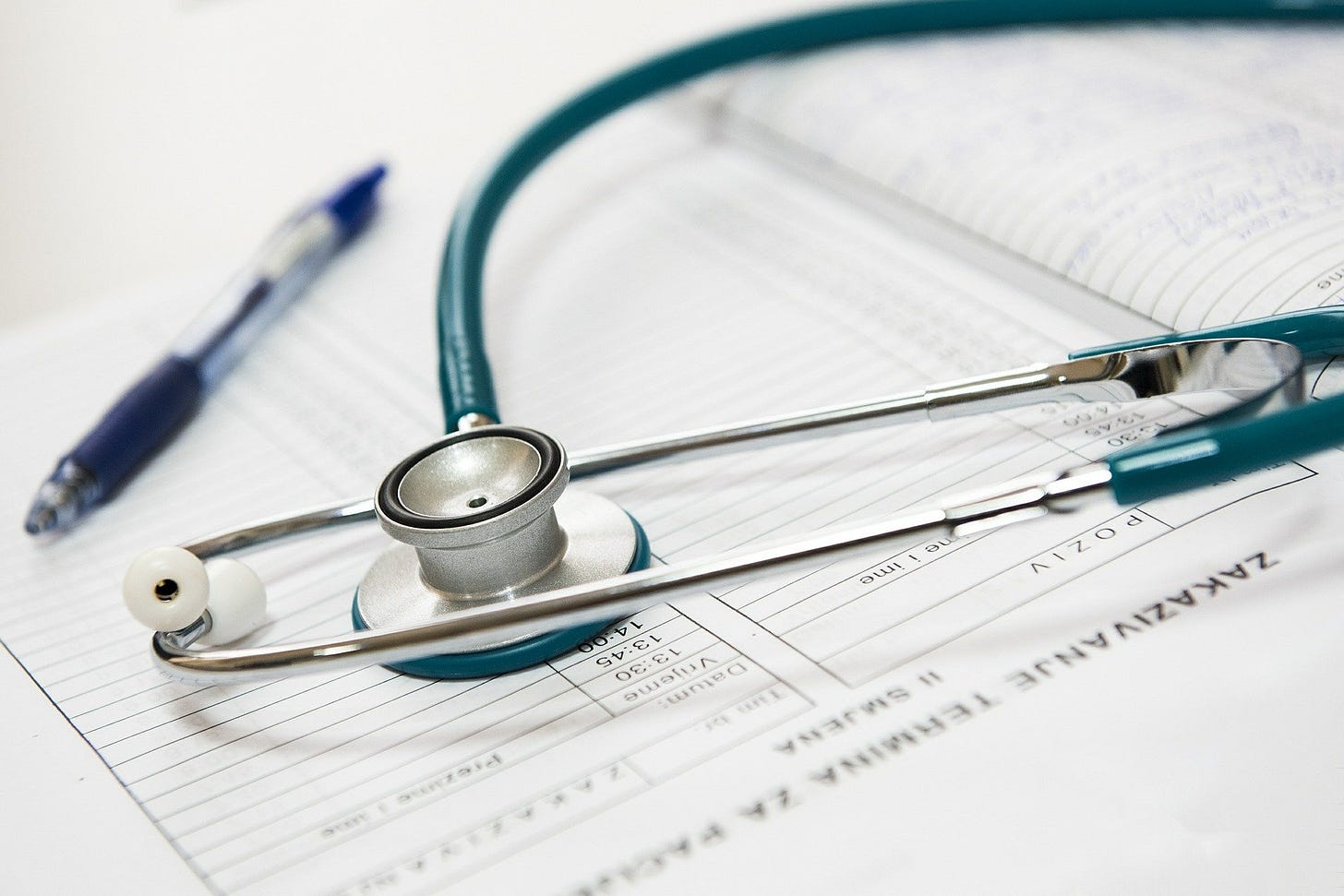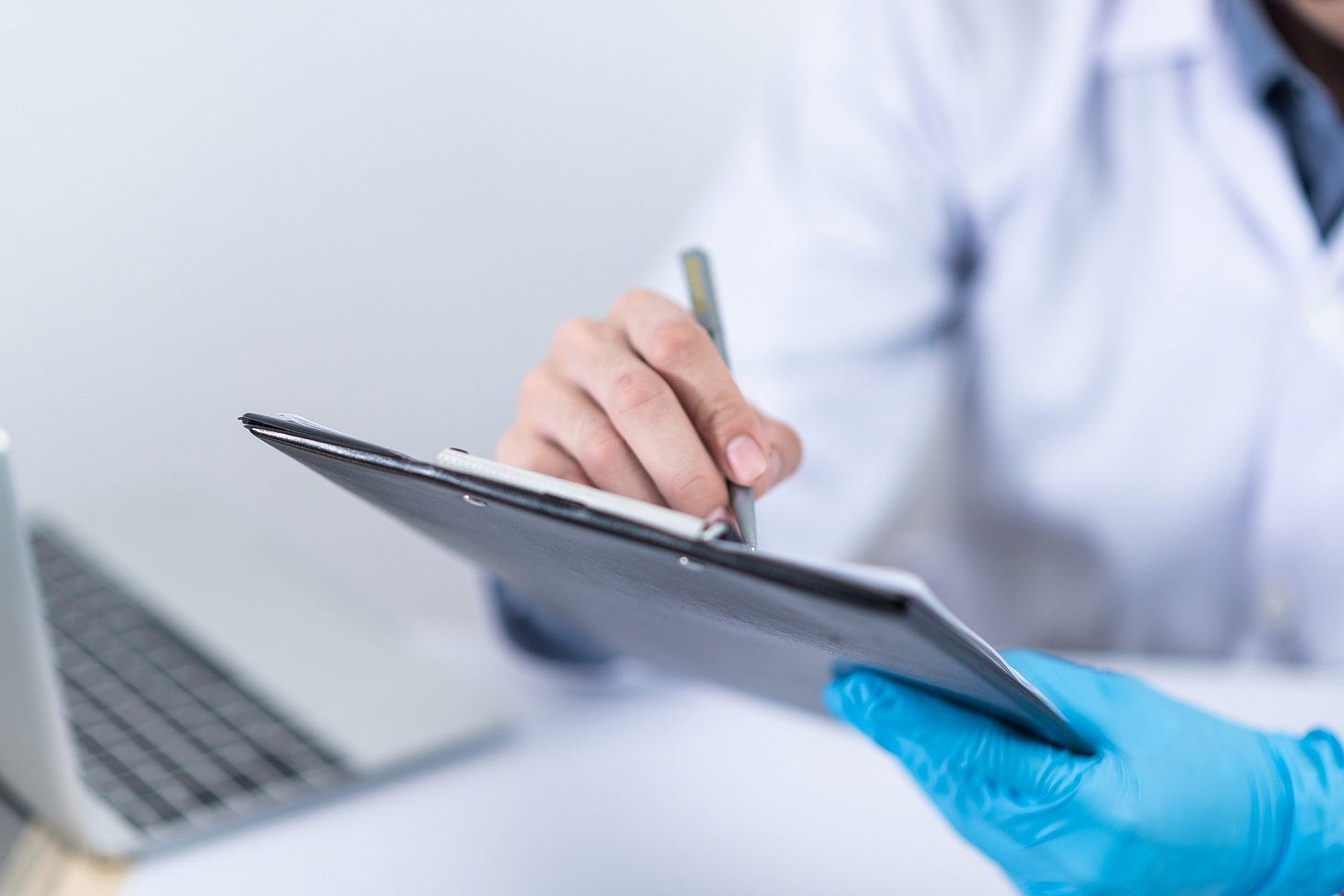Complaints about GP access in Northants double
Long waits and a lack of face-to-face appointments are concerning residents as the pandemic continues to impact GP services
NN Journal is written by two Northants journalists who think public interest journalism is an important function of a thriving community. We’d be grateful for your support
By Natalie Bloomer and Sarah Ward
The health watchdog that keeps an eye on Northamptonshire’s health services says that complaints about GP services have doubled in the last six months with access to appointments the biggest issue.
44 complaints have been made to Northamptonshire Healthwatch between January and July, which is more than the 41 total brought to them during the whole of 2020.
Just over half of complaints made over the last six months (52 per cent) have been to do with problems accessing services.*
The organisation is now planning to look deeper into the issue and carry out its own investigations.
CEO Kate Holt said:
“We have seen an increase in people telling us about difficulties getting an appointment (phone or face to face) with a GP, including those struggling to get through to the practice on the phone or unable to communicate over the phone, as well as those being told there are no appointments available.
“Others have told us that they valued the convenience of being able to speak to a GP over the phone or video calls and some would prefer more online services.
“We will be exploring people’s experiences of accessing GP services further over the coming months to support practices and the Clinical Commissioning Group to deliver services that meet people’s varying needs and give patients a choice in how they can access services.”
The Northamptonshire Healthwatch focus on GP services comes after the national Healthwatch published a report in May which spoke about the ‘significant issue’ of GP access for the public.
It reported:
“The pandemic has not helped, and many of the issues people have raised with us are problems that we’ve reported on before, such as difficulties in booking appointments or poor communication about changes to services.
“What has fundamentally shifted though, is the way we access GP services – potentially permanently. Instead of phoning for an appointment or walking-in to a local surgery, access to care has rapidly moved to online bookings, and video and phone consultations. For some people the rapid digitalisation of care has worked.
“Our previous report The Doctor will Zoom You Now highlighted how for many, remote consultations were more convenient, making access to care quicker, more efficient and easier to fit around their lives.
“Therefore, it is important that where people’s experiences of accessing care have improved, that we acknowledge this and make the improvement a permanent feature of the system.
“On the other side of the coin, it is clear many people are now struggling to access care from their GP, often simply because they do not know how.
“This is leading to people feeling that GP practices are not ‘open for business’ or that they should not seek care for their health issue because of the pressures the pandemic has placed on the NHS. This puts people’s health and wellbeing at risk and increases demand on overstretched hospitals – both from those who cannot get a GP appointment so seek care at A&E, and from people who now need more advanced care and treatment because they were unable to get help sooner.”
The watchdog has called for NHS England to undertake a review:
“The issues raised in this report suggest that there is a need for NHS England to commission a formal review of how people have accessed their GP services during the pandemic. We have witnessed a shift from visiting your GP or A&E to a system of digital appointments, triage and NHS 111 First, and that the shift has left some groups experiencing a worse service. NHS England should therefore also review the effectiveness of these new methods of access.”
NHS England sent out a directive in May to GP practices saying they must offer face-to-face appointments if this was the patient preference. But this faced a backlash from some quarters - chair of GP Survival Dr John Hughes said the grassroots organisation is concerned the announcement ‘appears to have been made as a result of a press campaign suggesting that surgeries are closed.”
At the most recent board meeting of the Northamptonshire Clinical Commissioning Group (CCG) in June, the board heard that the county’s 68 GP practices are offering 17,000 appointments per day. Sixty per cent of those appointments are face to face, meaning that 6,800 patients each day in Northants are having their health concerns assessed either by virtual appointment or telephone appointment.
At the meeting the CCG’s director of primary care Julie Curtis told the board:
“A large number of our population prefer to access services via telephone or virtual appointments, but we will continue to regularly review services in order to ensure people get timely and appropriate care when they need it.”
When NN Journal asked how Julie Curtis had evidenced her assertion that residents preferred remote appointments, a spokesman said this had come from feedback from primary care professionals and national information. A wider survey had not been undertaken.
The problems accessing a GP appointment appears to be having a knock-on effect at the county’s two accident and emergency department’s and urgent care units as people are finding themselves having no option but to turn up looking for treatment. Some surgeries are also advising patients to attend urgent care if they cannot offer them an appointment in a timeframe they consider appropriate for their needs.
Social media has been flooded with people voicing their complaints about not being able to see their GP.
A resident from East Northamptonshire who works in construction told NN Journal he injured his knee at work in November and still hasn’t seen a doctor in person.
“I haven’t been able to work for months because I can’t put any weight on my leg. I called the doctors and was booked in for a telephone appointment. He asked me a few questions and referred me to a physio. The physio called and gave me a few exercises to do but they didn’t help and nobody had actually seen my knee.
“It’s not just the pain but the fact I can’t work that’s the problem.”
It was only when he visited A&E when the pain got unbearable that an X-Ray was done and he was finally referred for an MRI scan. The appointment for that came through quite quickly and he was told to call the doctors in three weeks for the results.
Earlier this month he says he called back and was told that the scan results were in but a GP hadn’t looked at them. He asked for a doctor to call him but says he was told that wouldn’t happen until the scan had been looked at. This went on for two more weeks before anybody called.
“When they finally looked at the results, it was clear it was a severe injury which is likely to need an operation. It’s frustrating that it’s taken this long to get this far. I’m now waiting for another referral to come through and I’m still unable to work.”
A mother of a nine-year-old girl in Wellingborough told NN Journal how her daughter was left without urgent antibiotics after a delay at her doctors. The child has significant damage to one of her kidneys due to recurrent urine infections, she is under a consultant at the hospital and it’s vital that she receives antibiotics as soon as there are signs of another infection.
“I always know when she has a UTI because she has had so many. I took a sample straight up to the doctors and waited for the results.
“Before the pandemic I would usually get a prescription for her within a day or so but this time I heard nothing. I called the doctors and was told it wasn’t ready. I kept calling and got quite cross in the end as I was so worried. I finally got a call back a week after the sample was provided to say she has an infection. She should have been started on antibiotics days earlier. I’m worried what damage might have been done.”
NN Journal asked the Northamptonshire Clinical Commissioning Group for its response to the GP access issue.
It said:
"Northamptonshire CCG is committed to the health and care of our population, ensuring appropriate services are available based on a person’s needs. The entire health and care system is currently experiencing a sustained and unprecedented level of demand for services, which is putting increased pressure on all services including GP practices, community services and hospital services such as A&E.
“We are working together across the system to manage the current pressures, as well as develop our services for the future as we move to becoming an integrated care system next year.
“The last 18 months have been extremely difficult for everyone involved in the NHS. We are proud of the commitment GPs, nurses, allied health professionals and the entire primary care workforce has shown to adapt their services and continue to provide patient care.
“While rules have changed regarding COVID-19 in the wider community, it remains important that healthcare settings continue to be a safe environment for the most vulnerable in our community and therefore certain restrictions and alternative ways of working remain in place.
“GP practices have been following guidance set out by NHS England to offer a blended approach of face to face and remote appointments, with digital triage where possible. It also continues to be the case that clinical decision making is a key factor in whether a patient needs to be seen face to face.
“Feedback received via colleagues working in primary care has been positive, with the telephone and online clinical triage supporting patients with their care needs and only those with an assessed clinical need having to travel into a GP practice for a further assessment. However, practices should have systems to allow face to face appointments where practically speaking it isn’t possible for a patient to access a remote consultation either via the telephone or an online video consultation.
“As we plan for the future of primary care, we will reflect and learn from the changed ways of working of the last 18 months, working alongside patient representatives and GP practices.
“Nationally there is a focus on triage before appointment continuing after the pandemic, to help ensure we provide effective, quality services and manage the growth in demand caused by a variety of reasons including an increasing population and increasing number of people with multiple conditions.
“We would ask that our Northamptonshire community continues to support our NHS as we manage the current pressure.
Please remember many minor injuries and illnesses can be treated with advice and medication from a local pharmacy and if you think you need urgent medical assistance please call 111 first or visit 111.nhs.uk.”
*This has been corrected from an earlier statement which said three quarters of complaints about GP services made in 2021 were about access. The error was due to confusion about data provided by Northants Healthwatch. We apologise for the error.



Certainly my anecdotal evidence from friends and family is that the face to face appointments are much more difficult to obtain so sourcing help in other ways is advisable if this is appropriate.
However this is not scientific so it would be good to have something more concrete to determine is this true and how patients are coping and are they actually inconvenienced.
|f this is beyond NN resources could some funding come from patients groups, surgeries and other interest groups like trade unions?